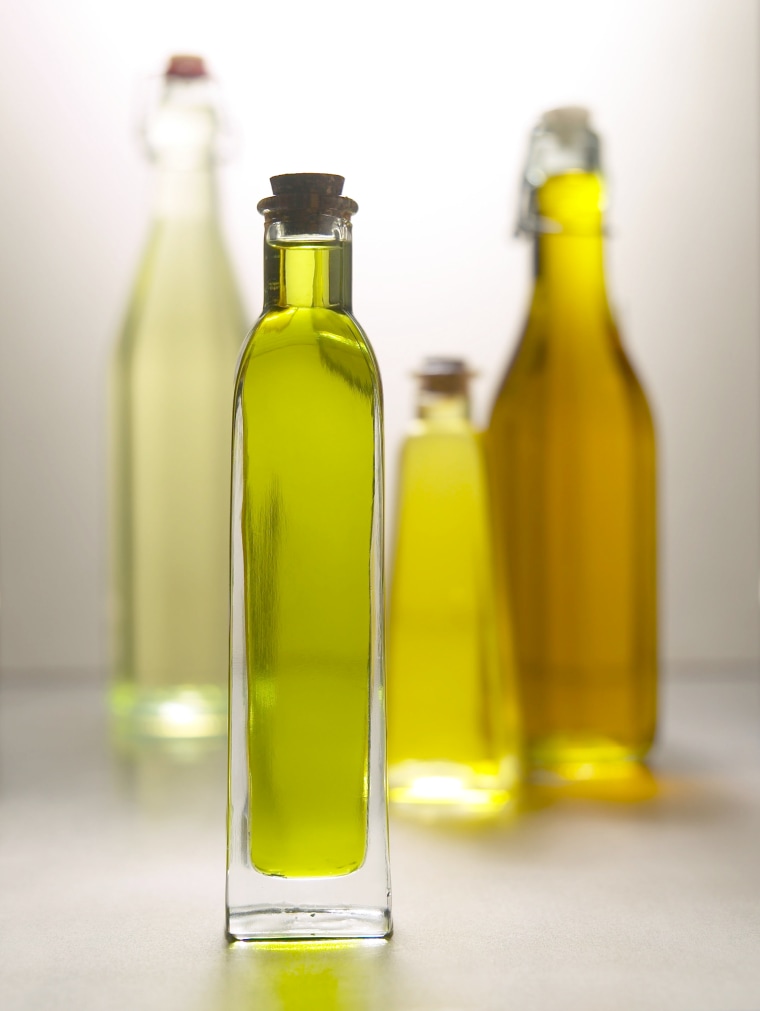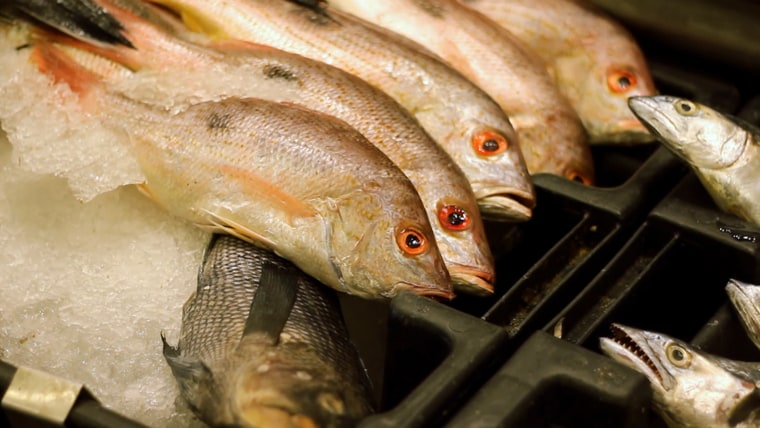Women who eat a Mediterranean diet with a little extra virgin olive oil have a lower risk of breast cancer, researchers reported in yet another study showing the health benefits of the approach.

Women who participated in the study who added extra-virgin olive oil to their diet had a 62 percent lower risk of breast cancer over the next five years or so, according to researchers at the University of Navarra in Pamplona.
The study was done in Spain, where people presumably eat the Mediterranean diet. The diet is characterized by lots of salad, fruit, vegetables, nuts, a little fish, a little lean meat, a small amount of cheese — and olive oil, of course. Wine is also served at meals.
The volunteers in the trial, however, were given extra counseling, and a weekly supply of either extra-virgin olive oil or mixed nuts.
The 4,282 women in the trial were, on average, about 68 and obese, with an average body mass index of 30.4 — just over the line for clinical obesity.
“After a median follow-up of 4.8 years, we identified 35 confirmed incident cases of breast cancer,” Miguel Martínez-González and colleagues wrote in the Journal of the American Medical Association's JAMA Internal Medicine.
“Women allocated to the Mediterranean diet supplemented with extra-virgin olive oil showed a 62 percent relatively lower risk of malignant breast cancer than those allocated to the control diet.”
The study is considered unusually strong because people are randomly assigned to different diets. It accounts for the possibility that people who choose to follow a certain healthy diet pattern may do other things differently, too.
Mediterranean diet: 7 easy ways to do it right
The study’s already shown some startling effects — the healthful diet with extra nuts and olive oil has been shown to help people live longer and avoid heart disease cutting the risk of heart attacks and strokes by 30 percent, and it may also help preserve their brains.
Now breast cancer is added to the list — but only among those who got the extra olive oil. The women who got the nut mixture also had a slightly lower risk of breast cancer, but the results were not strong enough to be considered significant.
“The Mediterranean dietary pattern has attracted considerable attention because, historically, breast cancer rates have been lower in Mediterranean countries than in Northern or Central European countries or the United States,” the researchers wrote.
It took a lot of olive oil to get the protection — it had to make up 15 percent or more of calories.
What’s in extra-virgin olive oil that’s so special? Extra-virgin means the olive oil is squeezed mechanically, without the use of heat or chemicals that can alter its chemical properties. It usually has a stronger flavor than processed olive oil.
“Several biological mechanisms could explain the putative anticarcinogenic properties of extra virgin olive oil,” the researchers wrote.

“All types of olive oil provide a high supply of monounsaturated fatty acids, mainly oleic acid, as well as squalene, whereas extra virgin olive oil also contains various biologically active compounds, such as the polyphenols oleocanthal, oleuropein, hydroxytyrosol, and lignans,” they added.
Oleic acid may act directly on cancer-causing genetic mutations, studies have shown. Squalene may help reverse damage caused by oxidation, which is a damaging chemical reaction linked to both cancer and heart disease.
Breast cancer is the second-biggest cancer killer of American women, after lung cancer. The American Cancer Society says more than 232,000 cases will be diagnosed this year, and more than 39,000 people will die of it.